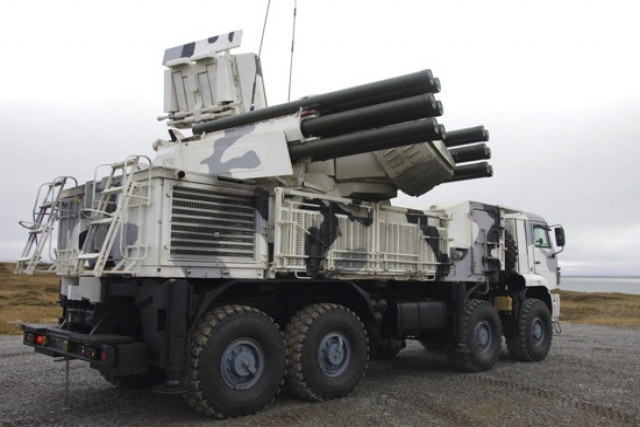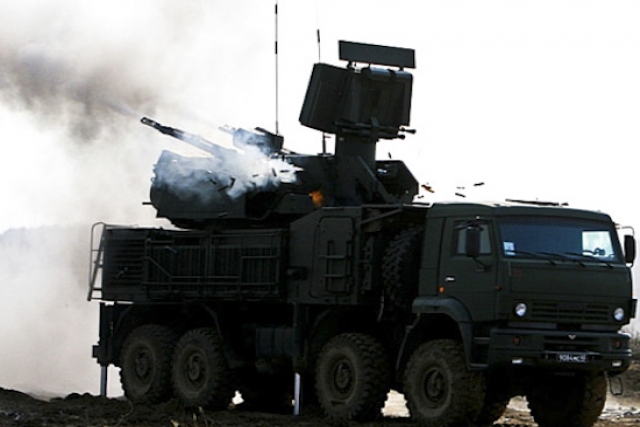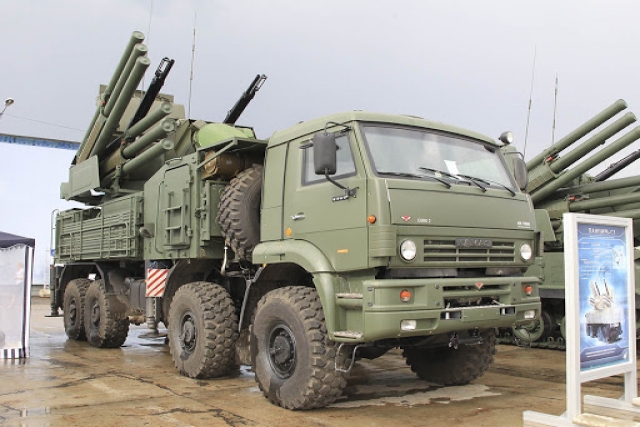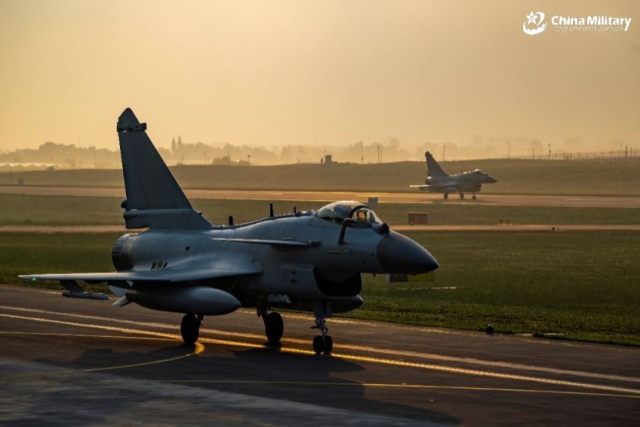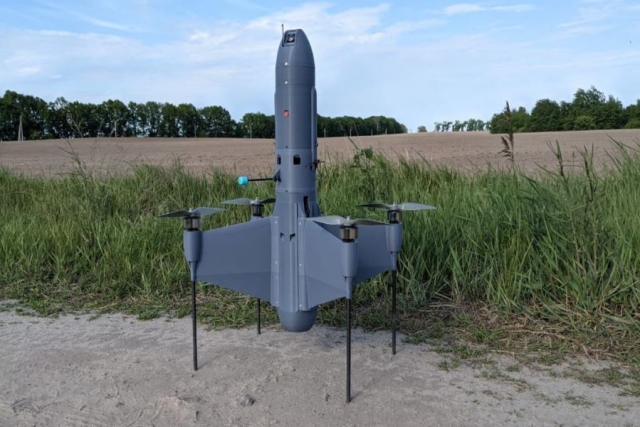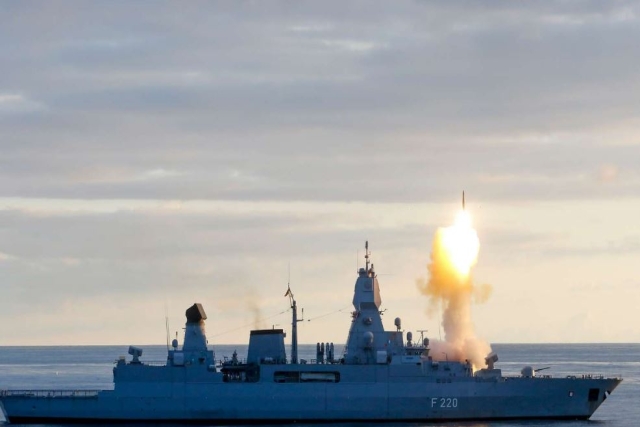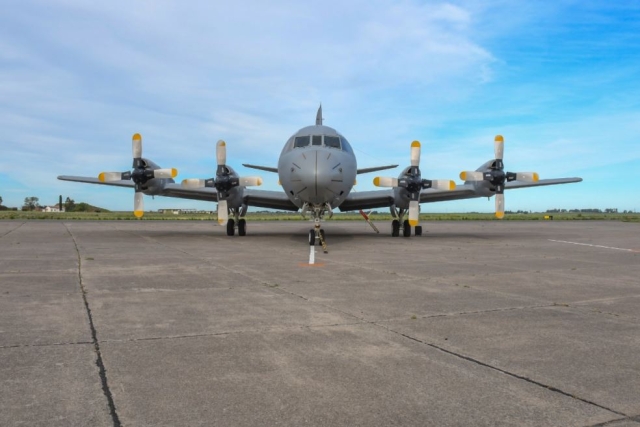Russia Tests Pantsir ADS Against Ultra-low Flying Targets
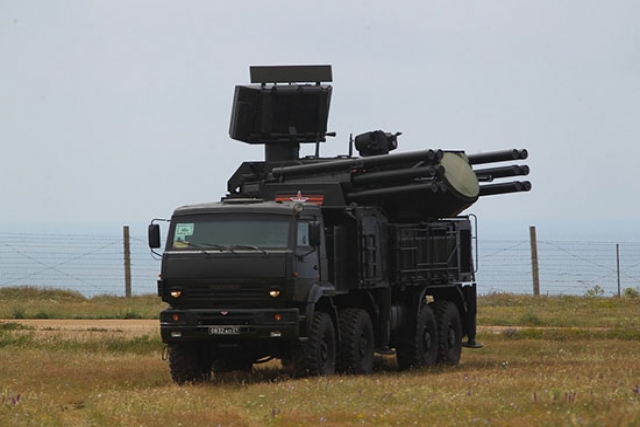
Russian Army’s Pantsir-S air defense systems (ADS) were tested to intercept targets flying at extremely low altitudes of 50m, during Kavkaz-2020 military drills.
The hostile targets were imitated by An-2 turboprop planes flying at altitudes lower than 50m and speeds below 200 km/h. Some of the aircraft flew in tight order at minimum intervals and distances, making it difficult for them to be detected. The crews of the radar stations and Pantsir-S ADS carried out accurate simulated firing of 20 An-2 planes during the exercises, Russian Ministry of Defense announced Tuesday.
After interception of targets, the crews of the Pantsir-S air defense missile system worked out a march to change positions and mask new positional areas. During the march, the tasks of combat guarding the convoy of equipment and repelling the attack of the reconnaissance and sabotage groups of the conditional enemy were worked out, the ministry said.
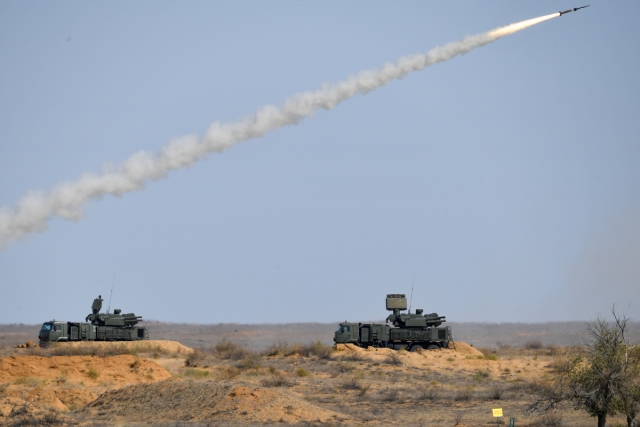
Earlier, the Pantsir, along with S-400 long-range and Buk-M2 medium range surface-to-air missile systems repelled massive air strikes imitated by Su-34, Su-24M, Su-30SM, MiG-29SMT and other aircraft flying at the altitudes from 50m-20km.
Pantsir-S systems were also tested against high-speed target missiles during the Kavkaz drills. The Pantsir’s near-peer market competitors, such as South Korean K30 Biho-I or Turkish Korkut have not yet publicly revealed their capacities to hit aerial vehicles flying at extremely low altitudes.
The Russian MoD tested Pantsir against targets simulating armoured personnel carriers at a distance of up to 3km earlier this year.
Manufacturer Tula-based KBP company claims that the anti-aircraft system has a modular design, jamming-resistant multiband radar-optical control system and the ability to fire at targets on the move.
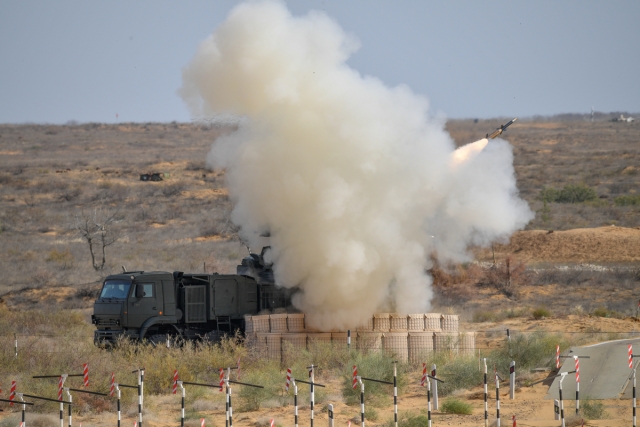
Modernized Pantsir-SM Missile System
On June 24, Russia unveiled Pantsir-SM armed with small missiles to destroy mini-drones during Victory Day Parade. The heavily modernized version of the Pantsir-S is equipped with new long-range missiles. In addition, the system is expected to feature greater capabilities for intercepting artillery munitions, missiles and drones, Russian state-media reported.
Ruslan Pukhov, director of the Centre for Analysis of Strategies and Technologies (CAST), told Defenseworld.net in June: “The practical experience of using the Pantsir against inexpensive and small UAVs in active war zones such as Syria has led to the development of miniature missiles by KBP, four of which are placed in the standard transporter-launcher container of the basic anti-aircraft missile of the system. Thus, the principle of hitting a cheap target with a cheap missile is being consistently implemented.”
